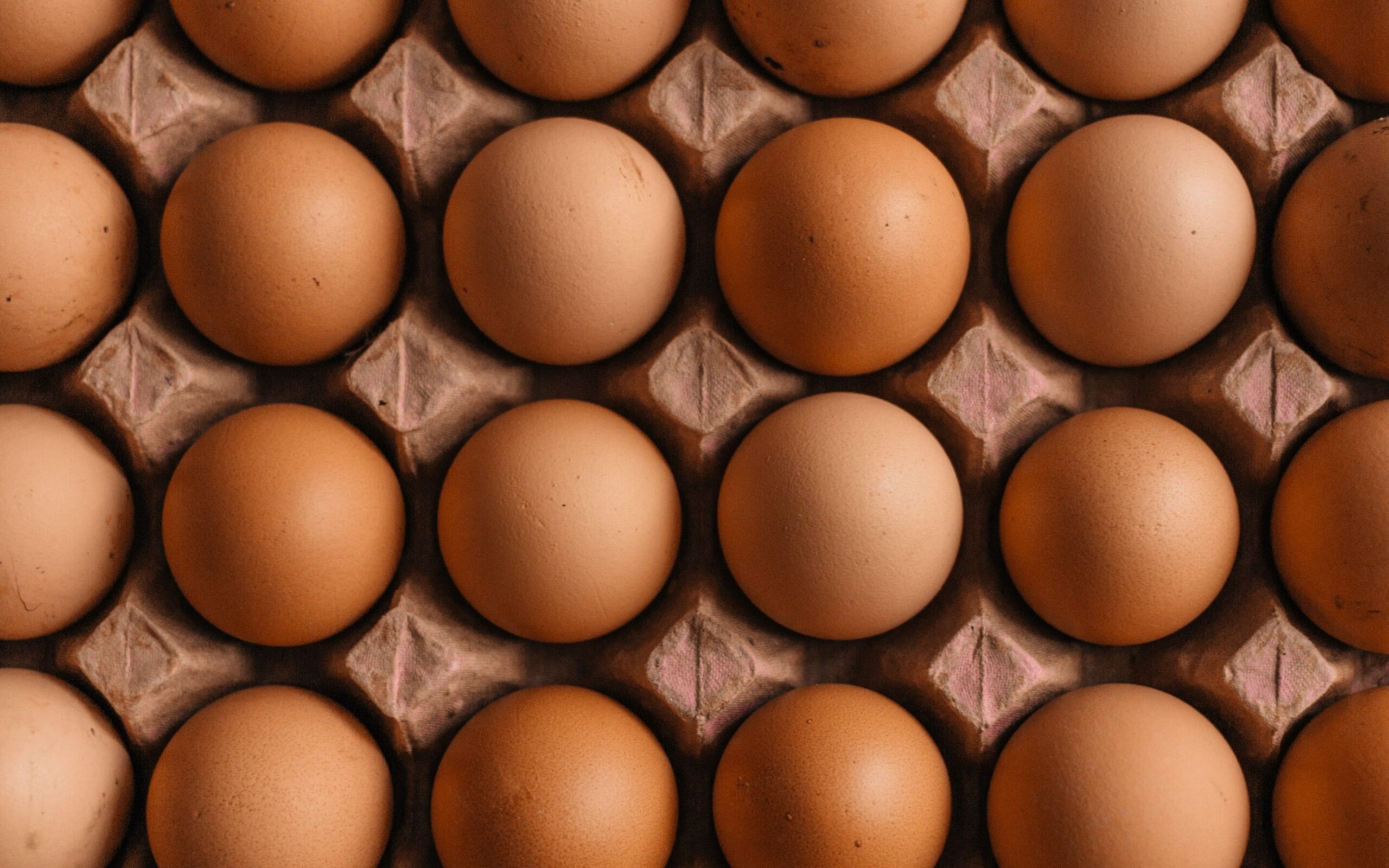
Egg conversion chart and size substitution guide
Your recipe calls for medium eggs, but you only have large ones. Can you just use fewer large eggs instead? Or, you need extra large eggs, but there are only small eggs in the supermarket. How many small eggs are equivalent to one large one? To help you navigate the minefield, we’ve put together an easy-to-use egg conversion chart, so you can get it right every time.
Do egg sizes matter?
It depends on what you’re making. If you’re cooking, then the choice of jumbo vs large eggs isn’t likely to make much difference, particularly if you’re making a dish like egg fried rice or scrambled eggs, for example. In those cases, the more eggs, the better!
Baking, on the other hand, calls for precision. If you use too much or too little egg when you’re baking bread or making a cake, it could be a recipe for disaster – literally.
Larger eggs contain more liquid than smaller ones, so if you use XL eggs in a recipe that calls for small eggs, you’re likely to end up with a wetter texture. That can leave you with a dense cake, or a soggy pie crust.
Eggs also act as a binding ingredient, holding the various elements of your cake or bread mixture together. If you add fewer eggs than you’re supposed to, your dough might not bind as well, which can affect its stability and texture.
They’re also essential when it comes to helping your baked goods to rise – so using the wrong egg size could have an impact on the height of your bread or cakes.
But it’s not always possible to use the exact specifications in a recipe, either because those egg sizes aren’t available, or you simply want to use what you have at home rather than buying more eggs. Or maybe you have your own chickens, who always lay small eggs – but your favourite recipes call for larger ones. In these cases, you need to know how to convert egg sizes.

How to convert egg sizes
Knowing how to substitute egg sizes or adjust the quantity of egg yolks and whites ensures that your dishes will turn out as you intend, with no soggy bottoms in sight.
Most recipes call for large eggs, but when you don’t have any, just refer to this conversion chart when you need to know how to weigh up large eggs vs medium eggs, or how many small eggs are equivalent to a jumbo egg.
Egg size chart

To use this chart, simply replace the number of large eggs in the recipe (in the top row) with the number of any other size of eggs listed in the rows below.
As you can see, if the recipe asks for one large egg, then you can replace that with one egg of any other size. But if the recipe specifies two or more eggs, you may need to use more eggs, depending on the size of eggs you have. If you need two large eggs, for example, but only have small eggs, then you’ll need to use three of those. Or if you’re supposed to use four large eggs but only have jumbo eggs, then you should use three.
This will help to ensure your mixture doesn’t end up too dry or too wet, and that it comes out if the oven as expected.
How many oz is an egg?
Another way of doing it, if you want to be really precise, is to weigh your eggs. Egg sizing is actually based on the weight of the egg rather than how big it is, and the sizing is determined by the weight of a dozen eggs. So, you can weigh your eggs to get a more accurate result.
One large egg weighs around 2 ounces (57 grams), and the other approximate weights by egg size are:
- Small egg: Roughly 1.5 ounces (43 grams)
- Medium egg: Around 1.75 ounces (50 grams)
- Extra large egg: Around 2.25 ounces (64 grams)
- Jumbo egg: Roughly 2.5 ounces (71 grams)
It takes a little more work to weigh your eggs but if you find that your mixtures are coming out too moist, or too dense, it may be the precision you need to get the just-right result.
How many cups is one egg?
Some recipes might specify the amount of eggs in cups. If that’s the case, then you also need to know how many eggs, of differing sizes, make up one cup. One cup is roughly equivalent to:
- Six small eggs
- Five medium eggs
- Five large eggs
- Four extra large eggs
- Four jumbo eggs
Bake with confidence
Eggs are the unsung heroes of baking. They help to make your bread rise, make your cake mixture moist, and add flavour to your bakes. So it’s pretty important that you’re able to switch up egg sizes when you’re in the middle of baking and realise you’ve only got the wrong size available – but armed with this egg conversion chart, you should be in good stead.
And if you’re looking for recipes to practise your baking skills with, check out Richard Bertinet’s BBC Maestro course, Bread Making. In 26 easy-to-follow lessons, the baker and teacher reveals his baking secrets, helping you to bake with confidence – and get amazing results (no matter what size of eggs you use).

Give the gift of knowledge
Surprise a special someone with a year's access to BBC Maestro or gift them a single course.




